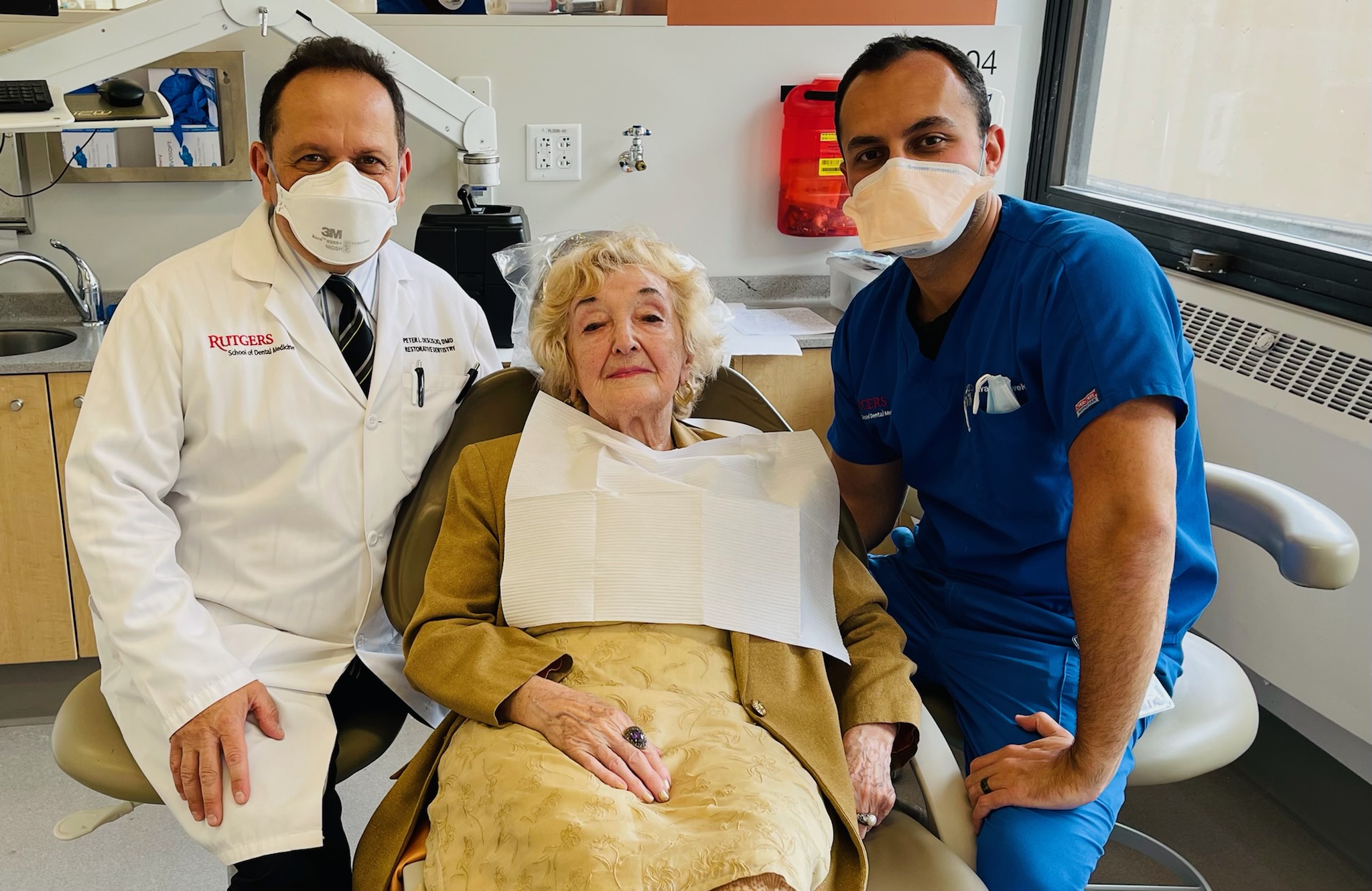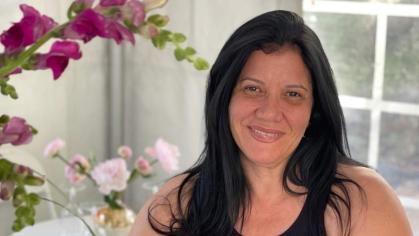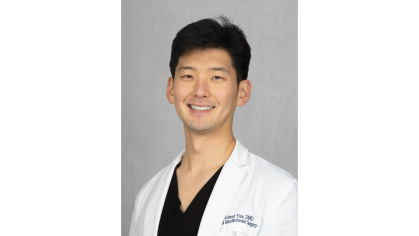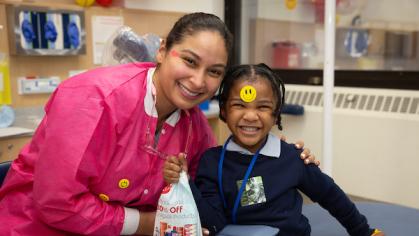94-Year-Old Holocaust Survivor Gets Her Smile Back
War, death, hunger—Yelena Olshansky, 94, has seen it all. She survived one of the most brutal periods of world history: World War II and the Holocaust. She is now a patient in RSDM’s Holocaust Survivors Program (HSP).
“When they said to me that this is free, I couldn't believe my ears,” said Olshansky, originally from St. Petersburg, Russia.
 Professor of Restorative Dentistry Peter L. DeSciscio ’85 (left), Yelena Olshansky, and Ivan Alkhwekhi ’23
Professor of Restorative Dentistry Peter L. DeSciscio ’85 (left), Yelena Olshansky, and Ivan Alkhwekhi ’23
HSP took root in 2020 thanks to the generosity of Howard Drew ’82, whose parents were Holocaust survivors, and his wife, Ina Drew. So far, the program has had more than 40 patients and over 359 patient visits.
Olshansky has had most of her teeth pulled out by her previous dentists. This left her with severe discomfort. She lost her appetite and also a lot of weight. “I suffered for almost a year,” she said. She went from one doctor to the next for a solution. “One doctor said I have a crooked mouth and therefore should not do anything.” Then, she heard about RSDM’s program, where she found the care she needed.
“They made a miracle for me,” she said. Olshansky has had fillings, cleanings, and dentures, and she might need implants in the future. “I have the best doctors in the world,” she said. “All the doctors are so polite, so human, so nice to me …Everybody pays attention to me, and I even feel at ease.” She added that she feels like a queen at RSDM.
“She was an actress. She wanted to be able to smile, and she really felt somewhat handicapped because she was told a bunch of times that her smile was crooked, and no one wanted to fix it,” said Professor of Restorative Dentistry Peter L. DeSciscio ’85, the attending in Olshansky’s case. “We immediately built a rapport and trust with her, and she felt like she was in the right place and being treated by the right people.”
DeSciscio has been involved with the program ever since he heard about it. “These types of programs really connect us not just to one person, but to the entire community,” he said. But he feels he has a special connection with Olshansky. “She looks at us like her children.”
The same is felt by Ivan Alkhwekhi ’23, a student in the internationally educated DMD program.
“She lives by herself. She doesn't have any family here. When she comes here, she looks at me like she's looking at one of her sons,” said Alkhwekhi. Originally from Syria, Alkhwekhi personally and religiously feels connected to the program and the survivors. “In a way, I also survived a big war when I came here by myself,” he said. “So, Ms. Olshansky and I share a lot in common—we both fled our countries, we both escaped war.”
When the war began, Olshansky was a 13-year-old. She still vividly remembers the freezing nights in the basement of the St. Petersburg art museum, where her father worked. With teary eyes, she recalls cleaning dead bodies off of the streets, delivering letters from wounded soldiers to their families, and sharing a few spoons of food with her family for years.
“My mother couldn't walk anymore from hunger,” she said. “It was absolutely horrible situation.” In this period, she lost 13 family members—six from hunger and seven from combat.
After the war, her mother got better, her father went back to his museum job, and she studied music. But the family saw another tragedy. “One person wrote a letter that my father stole two Russian pictures and sold them to the United States,” she said. “They gave him 15 years.” Olshansky’s mother was also sentenced as an accomplice. Olshansky herself was interrogated.
“After this, I changed my mind about my country, and I participate in a movement against my government,” she said. That made living in Russia harder. She first got a visa to Israel and then came to the U.S. in 1979.
She began learning English and studied bouquet making. Not finding employment in that field, she started working in Lord and Taylor’s billing department. Retired in 2013, she lives in an adult daycare in New Brunswick. She acts, reads, and gives lectures about the Holocaust and Jewish people so that history wouldn’t repeat itself.
Holocaust survivors interested in treatment can call 973-972-5304 to schedule an appointment.



